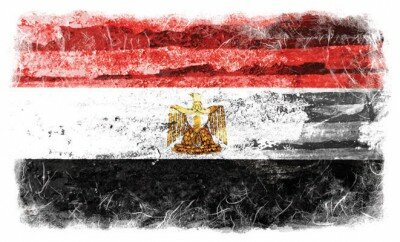Editor’Space
Upheaval and growth
Bismillah
I was in Egypt on January the 25th, when the protesters marched on Tahrir Square. I was in Egypt when the mood of the Egyptian people shifted: from one of fear and silence, to one of fearlessness and rebellion. I was in Egypt when they broke the glass covering Tutankhamen’s treasures and left mummified bodies on the floor of the Museum of Antiquities. I was in Egypt when the streets blazed with vehicles set on fire, when army tanks rolled down residential streets and the night air sang with bullets and the sounds of looters and vigilantes. I was in Egypt when the gas ran out and the shops closed early, their shelves empty. I was in Egypt when the curfew was put in place, when men armed with swords and bats and metal poles stood watch through the night, daring any looters to come near their property.
If you ask foreigners who were in Egypt during the uprisings in January, they will all have a different story to tell. Some will speak of their fear, of their anxiety, of their worries about the unpredictable situation. Some will speak of the heroism, of the sense of community that emerged when the police stopped policing and told the residents to defend their property. Others will speak of their decision to leave, along with their families. Others will explain their decision to stay.
All will testify to the fact that their lives were turned upside down.
I write this editorial from Johannesburg, South Africa. My family and I left Egypt before opposing sides began to pelt each other with stones in Tahrir. And, although I was grateful for the presence of family and the warmth and welcome of the people of South Africa, my heart ached for Egypt, the Egypt that I knew: the relaxed, predictable, safe place I had called home for the past four years.
I found it hard to believe that what we lived – the sights, the sounds, the smells, the friends we made, the neighbourhoods we knew, the schools we attended, the plans we made – could unravel and become strangers so quickly. All of a sudden, foreigners who had called Egypt home for five, six, seven years, were forced to contemplate returning to their own countries, places that now seemed strange and awkward, like fitting a square peg into a round hole. We were forced to face the fact that one stage of our lives may have ended, perhaps forever, and that another, uncertain era had begun.
But isn’t this part of the bittersweet symphony of life? We humans think ourselves so powerful, so in control of our lives, of the elements, of our destinies. But when the individual actions of people other than ourselves, people unknown to us, affect our lives in such a fundamental way, we are forced to stop and appreciate how insignificant we are in the big scheme of things, how utterly we rely on the mercy of our Lord. For only He is All-Knowing, All-Wise. Only He knows all that has been and all that is to come.
I do not know where I will be when this editorial is published. I have given up trying to predict the future, a future that is merely the whisper of a promise, like grains of sand between my fingers. All I can do – all any of us can do – is try to grasp the possibilities of ‘right here, right now’. What is my purpose in this place, wherever that may be? What good can I do? How can I grow? How can I fulfil my purpose, right here, right now? For the truth is, no matter how settled we may think we are in our homes, our families, our lives, Allah’s Plan is unknown to us, and our circumstances could change in the blink of an eye.
So, sitting in an exile that even I do not comprehend, I ask you this: how can you fulfil your life’s purpose, right here, right now?
Wasalaam
Na’ima B.
PS. The thoughts and prayers of the SISTERS team are with the people of Egypt and all countries in which there is strife and unrest. May Allah ta’ala rectify their affairs, lead them to the truth and shower His blessings upon them.
Editor’Space March 2011

u are good